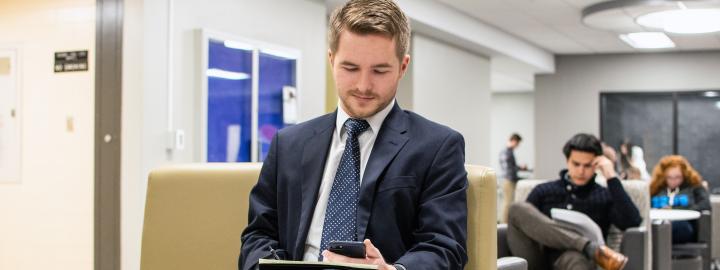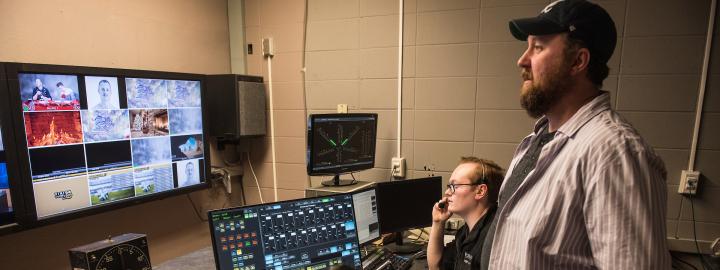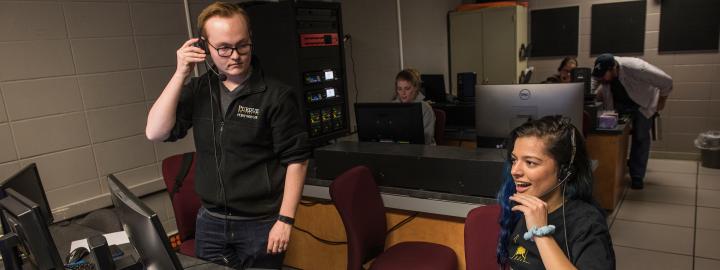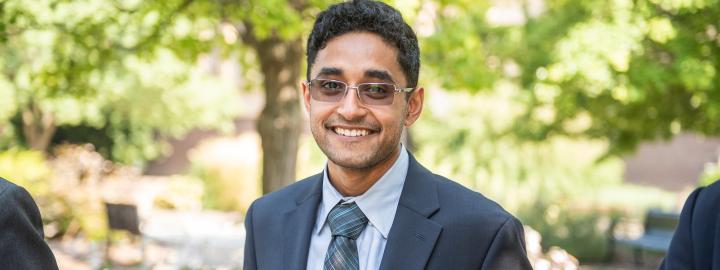
Communication Programs
Communication is key.
Communication makes the world go round. Think about it. From writing an A+ paper to texting friends—it all requires communication. So why not become a pro?

Communication (B.A.) with Concentration in Journalism
It takes someone willing to uncover the truth to make a difference. With the bachelor of arts in communication with a journalism concentration, you’ll learn everything you need to know to get the news to the public. You’ll be prepared with research, writing, and interviewing skills that will enable you to produce news content for newspapers, magazines, television, radio, and all digital platforms.

Program
Highlights
Program Highlights
- The development of problem-solving skills
- The ability to research and analyze information
- An enhanced understanding of argumentation and writing
- Support from the Mastodon community
- A prestigious Purdue degree
career and salary data
How far will you go?
General labor market and salary data are provided by Lightcast via O*NET and may not represent the outcomes experienced by Purdue Fort Wayne graduates in these programs. Purdue Fort Wayne graduates in these programs may earn salaries substantially different or less than the amounts listed. Salary and employment outcomes vary by geographic area, previous work experience, education, and opportunities for employment that are outside Purdue Fort Wayne’s control. Purdue Fort Wayne does not guarantee employment placement, salary level, or career advancement.
Student Learning Outcomes
Upon completion of this degree, students will be able to demonstrate the following learning outcomes:
- Understand and apply the principles and laws of freedom of speech and press, and understand the range of systems of freedom of expression around the world, including the right to dissent, to monitor and criticize power, and to assemble and petition for redress of grievances
- Demonstrate an understanding of the history and role of professionals and institutions in shaping communications
- Understand concepts and apply theories in the use and presentation of images and information
- Demonstrate an understanding of professional ethical principles and work ethically in pursuit of truth, accuracy, fairness, and diversity
- Think critically, creatively, and independently
- Conduct research and evaluate information by methods appropriate to the communications professions in which they work
- Critically evaluate their own work and that of others for accuracy and fairness, clarity, appropriate style, and grammatical correctness
- Communication and Diversity Trainer
- Communications Director
- Editor
- Elected Official
- Film Producer
- Human Resources Professional
- Marketing Manager
- Newscaster
- Public Relations Professional
- Social Media Manager
- Writer










